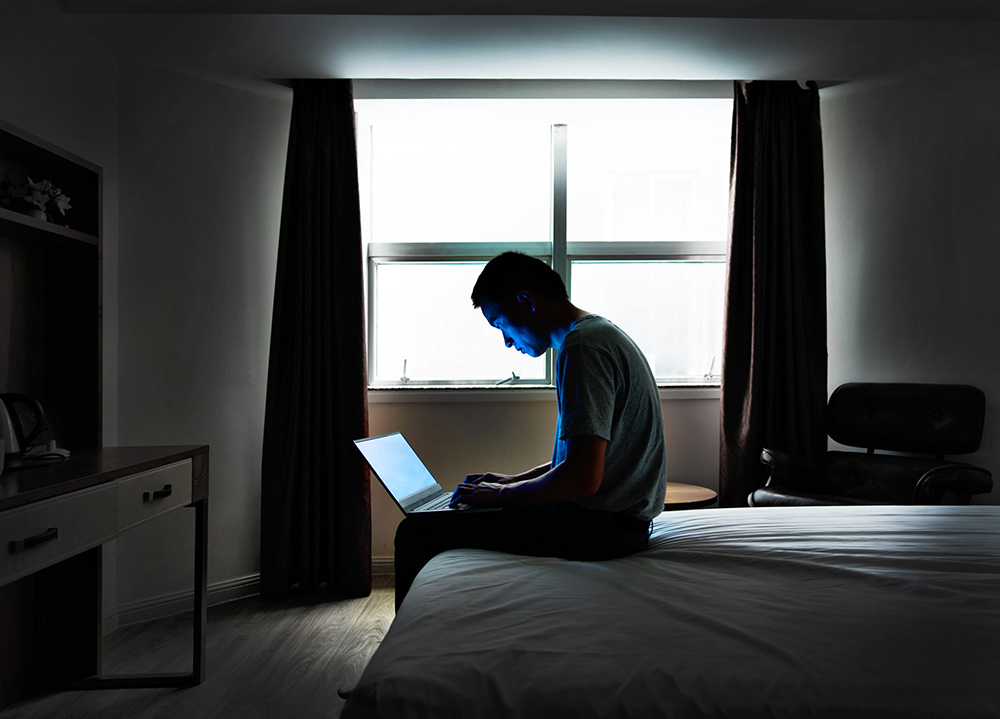
众所周知,最近几年,商务旅行被颠覆,由于疫情的影响商务旅行几乎达到停滞的地步,而随着公司将虚拟会议作为第一选择,商务旅行的频率大幅减少。现在有迹象表明,商务旅行正在积极复苏,预计2023年和2024年都将持续增长。
虽然这对于商务旅行管理公司和重视面对面交流的公司确实是好消息,但一项最新研究披露,大多数商务旅行者对于恢复出差并不热情。为什么?许多人被要求“恢复常态”,但关于如何在后疫情时代出差,他们却几乎得不到任何指导。
对于公司而言,如果不考虑这种全新的环境,它们将会受到严重影响。Opinium应旅行风险管理组织世界旅行保护(World Travel Protection)委托开展的一项调查显示,只有三分之一商务旅行者(33%)表示对恢复出差感到开心。而对出差不开心的受访者表示,与疫情之前相比,他们更担心在出差过程中的身心健康问题,而且他们经常感觉有压力、疲劳、想家和焦虑。
对于旅行风险管理行业的从业者而言,这种情况的出现并不意外。我们清楚,一些可怕的而且通常会令人产生压力的因素相互叠加,永久改变了全球旅游业的格局,对世界各地的商务旅行者产生了影响。
新出现的威胁包括地缘政治冲突、对某些群体和种族的歧视加剧、人工智能和其他技术变革,以及气候变化导致飓风、地震和野火等自然灾害增多。
除此之外,旅游业依旧面临人手不足的问题,这经常导致航班延误、旅行中断等,加剧了一些员工对出差的反感。
女性尤其会对出差感到焦虑。有70%的商务旅行者认为女性出差的安全性低于男性;约四分之一商务旅行者,包括男性和女性,均表示他们不愿意前往女性权益不受保护的国家出差。
随着美国和全世界恐同言论和仇恨言论增多,相关立法日益严格,LGBTQIA+员工变得更加焦虑。危险和公然骚扰显然是他们感到压力和焦虑的来源,而如果他们感觉自己因为担心不良影响而被迫隐瞒自己的性取向或性别表达,这种负面情绪可能会加剧。
尽管员工出差的风险和焦虑增加,但很少有公司能在员工出差之前,为员工提供关键教育和信息,使他们能够做好充分准备,并为他们提供保护。只有不到30%的员工表示在出差时得到了实用建议,例如紧急情况下的联系人或遭遇事故时的处理方式等。只有刚过半数的商务旅行者认为,在海外出差时,如果遭遇紧急情况或个人危机,其所在的公司能够提供帮助。
如果公司没有向员工充分传达其可以提供的支持,商务旅行者可能会感到不安,而且通常只能自己动手处理问题。(调查发现,约一半商务旅行者会保证家庭成员或同事能够始终知晓他们身在何处,约四分之一商务旅行者会在天黑后避免独自外出。有人甚至承认会在酒店房间门前放置障碍物,以避免不速之客闯入。)
所有雇主都有义务保护员工,避免他们遭受超出其身体健康和安全之外的可合理预测的健康和安全风险,包括心理健康风险。否则雇主可能要在法律和公司信誉方面承担严重后果。
毫无疑问,自疫情爆发以来,出差者的社交隔离和心理健康恶化等问题变得更加突出,而近几年出差所带来的压力更是雪上加霜。
过去几年,人们可以在舒适便利的家中远程办公,因此出现这种现象并不意外。目前,商务旅行变得前所未有的不稳定、复杂或不可预测,而应对风险变得更加困难。
保证出差员工的身心健康是每一位雇主的责任。雇主可以主动采取保证出差安全的积极措施,以减轻员工的焦虑和压力,支持员工出差期间的心理健康需求,并保证员工在后疫情时期可以安全、自信地商务旅行。(财富中文网)
本文作者弗兰克·哈里森为世界旅行保护美洲区安全总监。
Fortune.com上发表的评论文章中表达的观点,仅代表作者本人的观点,不能代表《财富》杂志的观点和立场。
翻译:刘进龙
审校:汪皓
众所周知,最近几年,商务旅行被颠覆,由于疫情的影响商务旅行几乎达到停滞的地步,而随着公司将虚拟会议作为第一选择,商务旅行的频率大幅减少。现在有迹象表明,商务旅行正在积极复苏,预计2023年和2024年都将持续增长。
虽然这对于商务旅行管理公司和重视面对面交流的公司确实是好消息,但一项最新研究披露,大多数商务旅行者对于恢复出差并不热情。为什么?许多人被要求“恢复常态”,但关于如何在后疫情时代出差,他们却几乎得不到任何指导。
对于公司而言,如果不考虑这种全新的环境,它们将会受到严重影响。Opinium应旅行风险管理组织世界旅行保护(World Travel Protection)委托开展的一项调查显示,只有三分之一商务旅行者(33%)表示对恢复出差感到开心。而对出差不开心的受访者表示,与疫情之前相比,他们更担心在出差过程中的身心健康问题,而且他们经常感觉有压力、疲劳、想家和焦虑。
对于旅行风险管理行业的从业者而言,这种情况的出现并不意外。我们清楚,一些可怕的而且通常会令人产生压力的因素相互叠加,永久改变了全球旅游业的格局,对世界各地的商务旅行者产生了影响。
新出现的威胁包括地缘政治冲突、对某些群体和种族的歧视加剧、人工智能和其他技术变革,以及气候变化导致飓风、地震和野火等自然灾害增多。
除此之外,旅游业依旧面临人手不足的问题,这经常导致航班延误、旅行中断等,加剧了一些员工对出差的反感。
女性尤其会对出差感到焦虑。有70%的商务旅行者认为女性出差的安全性低于男性;约四分之一商务旅行者,包括男性和女性,均表示他们不愿意前往女性权益不受保护的国家出差。
随着美国和全世界恐同言论和仇恨言论增多,相关立法日益严格,LGBTQIA+员工变得更加焦虑。危险和公然骚扰显然是他们感到压力和焦虑的来源,而如果他们感觉自己因为担心不良影响而被迫隐瞒自己的性取向或性别表达,这种负面情绪可能会加剧。
尽管员工出差的风险和焦虑增加,但很少有公司能在员工出差之前,为员工提供关键教育和信息,使他们能够做好充分准备,并为他们提供保护。只有不到30%的员工表示在出差时得到了实用建议,例如紧急情况下的联系人或遭遇事故时的处理方式等。只有刚过半数的商务旅行者认为,在海外出差时,如果遭遇紧急情况或个人危机,其所在的公司能够提供帮助。
如果公司没有向员工充分传达其可以提供的支持,商务旅行者可能会感到不安,而且通常只能自己动手处理问题。(调查发现,约一半商务旅行者会保证家庭成员或同事能够始终知晓他们身在何处,约四分之一商务旅行者会在天黑后避免独自外出。有人甚至承认会在酒店房间门前放置障碍物,以避免不速之客闯入。)
所有雇主都有义务保护员工,避免他们遭受超出其身体健康和安全之外的可合理预测的健康和安全风险,包括心理健康风险。否则雇主可能要在法律和公司信誉方面承担严重后果。
毫无疑问,自疫情爆发以来,出差者的社交隔离和心理健康恶化等问题变得更加突出,而近几年出差所带来的压力更是雪上加霜。
过去几年,人们可以在舒适便利的家中远程办公,因此出现这种现象并不意外。目前,商务旅行变得前所未有的不稳定、复杂或不可预测,而应对风险变得更加困难。
保证出差员工的身心健康是每一位雇主的责任。雇主可以主动采取保证出差安全的积极措施,以减轻员工的焦虑和压力,支持员工出差期间的心理健康需求,并保证员工在后疫情时期可以安全、自信地商务旅行。(财富中文网)
本文作者弗兰克·哈里森为世界旅行保护美洲区安全总监。
Fortune.com上发表的评论文章中表达的观点,仅代表作者本人的观点,不能代表《财富》杂志的观点和立场。
翻译:刘进龙
审校:汪皓
It’s no secret that corporate travel has been upended in recent years, grinding almost to a halt because of the pandemic and then evolving into a much less-frequent occurrence as companies prioritized virtual meetings. Now, there are hints that a decent recovery is on the horizon, with growth projected for the sector in 2023 and again in 2024.
While this is certainly good news for business travel managers and companies that value face-to-face interactions, new research reveals that most business travelers are not so enthusiastic about being back on the road. The challenge? Many are being thrown back into the “return to normal,” often with little or no guidance on how to navigate travel in a post-pandemic world.
For businesses, the impact of not considering this new environment is significant. According to an Opinium survey commissioned by World Travel Protection, just a third of business travelers (33%) say they are happy to be traveling for work again. Those not so happy to be traveling report being more concerned about their health and well-being while traveling now, compared to before the pandemic, and often feeling stressed, exhausted, homesick, and anxious.
For those of us in the travel risk sector, none of this comes as a surprise. We know that a confluence of frightening and often-stressful factors has permanently changed the global travel landscape and left its mark on corporate travelers everywhere.
Among the new threats are geopolitical conflicts, rising discrimination against certain communities and ethnicities, A.I. and other shifts in technology, and climate change leading to an increase in the incidence of natural disasters, such as hurricanes, earthquakes, and wildfires.
Adding to the angst: The travel industry is still facing staffing shortages, often resulting in flight delays, itinerary interruptions, and more–only exacerbating some employees’ aversion to travel.
Women in particular face anxiety. Almost seven in 10 business travelers agree that traveling for work as a woman is less safe than traveling as a man; and about a quarter of all business travelers–men and women–say they prefer not to travel to countries where women’s rights aren’t protected.
With homophobic rhetoric, hate speech, and legislation intensifying across the U.S. and globally, anxiety among LGBTQIA+ employees is increasing. Facing overt danger and harassment is an obvious source of stress and anxiety, and this can be exacerbated if they also feel forced to hide their sexuality or gender expression, for fear of repercussions.
Even with these heightened risks and anxieties, few companies provide their employees with the critical education and information they need in advance of travel to prepare and protect them. Less than three in 10 employees report receiving practical advice while traveling, including who to contact in an emergency or what to do in the event of an incident. And only a small majority of business travelers believe their company would be able to help if they had an emergency or personal crisis while traveling abroad.
Without adequately communicated support, business travelers may feel uneasy and often take matters into their own hands. (Our survey found that nearly half of business travelers ensure family members or someone at work knows where they are at all times, and about a quarter avoid going out alone after dark. Some even admit to placing obstacles in front of hotel room doors to avoid break-ins.)
All employers have a duty of care to protect their employees from reasonably foreseeable risks that extend beyond physical health and safety, including risks to mental health and well-being. Failure to do so may expose them to significant legal and reputational consequences.
There’s no doubt that social isolation and deteriorating mental health have become much more pronounced among travelers since the pandemic, and this has only been compounded by the stresses of traveling in recent years.
After years of working remotely, often from the comfort and convenience of home, this hardly seems a surprise. Today’s travel landscape has never been more volatile, complex, or unpredictable, and it’s trickier than ever to navigate the risks.
Ensuring the physical and mental health of employees on the road is the responsibility of every employer. By taking a proactive approach to travel safety, businesses can reduce anxiety and stress among their employees, support their mental health needs while away, and ensure they can travel safely and confidently in a post-COVID world.
Frank Harrison is the regional security director, Americas, at World Travel Protection.
The opinions expressed in Fortune.com commentary pieces are solely the views of their authors and do not necessarily reflect the opinions and beliefs of Fortune.






